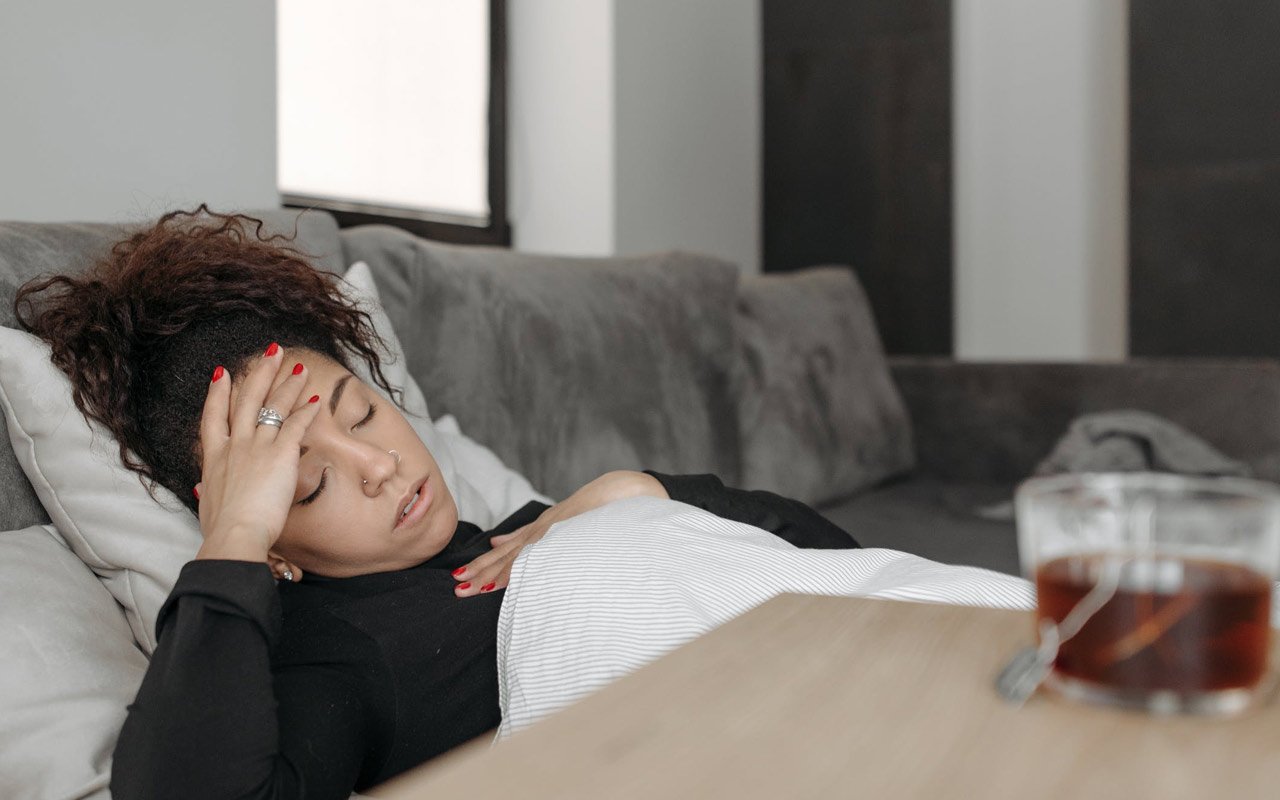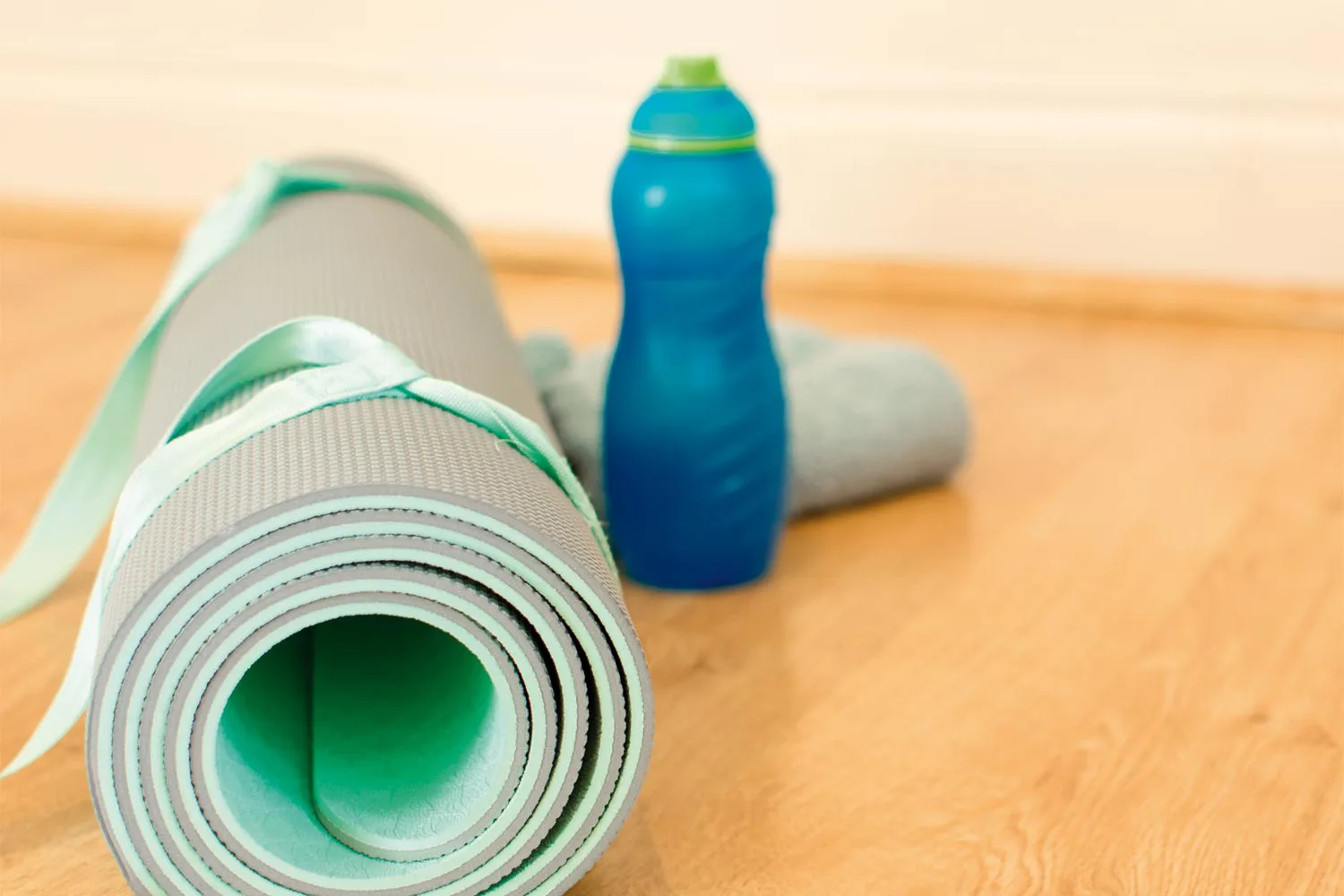If you frequently wake up with a headache, you may wonder what’s causing it and how to prevent it. Morning headaches are common and can affect your mood, energy, and productivity throughout the day. There are many possible causes of morning headaches, ranging from sleep disorders to lifestyle factors.
In this article, we’ll explain some of the most common causes of morning headaches and share some tips on how to treat them and avoid them in the future.
Table of Contents
What Are the Types of Morning Headaches?

There are many types of headaches, but the ones that are more likely to occur in the morning are migraine and tension headaches.
A migraine is a severe and throbbing headache that usually affects one side of the head and is often accompanied by nausea, vomiting, sensitivity to light and sound, and visual disturbances.
A tension headache is a mild to moderate and dull headache that feels like a tight band around the head and is often caused by stress, anxiety, or poor posture.
Other types of headaches that can happen in the morning include cluster headaches, sinus headaches, medication-overuse headaches, and caffeine-withdrawal headaches.
What Are the Common Causes of Morning Headaches?
There are many possible causes of waking up with a headache, but some of the most common ones are:
- Sleep apnea: This is a sleep disorder that causes pauses or shallow breathing during sleep. This can lower the oxygen level in the blood and raise blood pressure, which can trigger a headache in the morning.

A CPAP machine can help treat sleep apnea and reduce morning headaches - Snoring: This is a loud and harsh sound that occurs when the airway is partially blocked during sleep. Snoring can cause vibrations in the blood vessels in the head and neck, which can lead to a headache in the morning. Snoring can also be a sign or a factor of sleep apnea.
- Insomnia: This is a sleep disorder that makes it hard to fall asleep or stay asleep. Insomnia can cause sleep deprivation, which can affect the brain chemicals and hormones that regulate pain and mood, which can lead to a headache in the morning.
- Circadian rhythm disorders: These are disorders that affect the natural sleep-wake cycle of the body. Circadian rhythm disorders can cause disruptions in sleep quality and quantity, which can affect the pain threshold and sensitivity, which can lead to a headache in the morning.
- Lifestyle factors: These include habits or behaviors that can affect sleep quality or quantity, such as alcohol consumption, caffeine intake, smoking, medication use, diet, exercise, stress, or dehydration. These factors can affect the brain chemicals and hormones that regulate pain and mood, which can lead to a headache in the morning.

Caffeine withdrawal can cause morning headaches in some people - Migraine: Migraines are a type of headache that can cause severe pain, nausea, vomiting, and sensitivity to light and sound. Morning migraines are not uncommon, and they may be caused by changes in hormone levels or sleep patterns.
- Tension headaches: Tension headaches are the most common type of headache. They are caused by muscle tension in the neck, scalp, and shoulders. Tension headaches can occur at any time of day, but they are often worse in the morning.
How to Treat Morning Headaches
The best way to relieve a morning headache depends on the type and cause of the headache. However, some general tips that may help include:
- Taking over-the-counter pain relievers, such as ibuprofen, acetaminophen, or aspirin. These can help ease the pain, but they should be used carefully and as directed, as they can have side effects or cause rebound headaches if overused.
- Applying a cold or hot compress to the forehead or temples. This can help reduce inflammation and soothe the pain. You can also try massaging the head, neck, or shoulders to relax the muscles and improve blood flow.
- Drinking plenty of fluids, especially water. Dehydration can worsen headaches, so it is important to stay hydrated and flush out any toxins or substances that may trigger a headache. You should also avoid caffeine and alcohol, as they can dehydrate you and cause headaches.
- Getting some rest or sleep. If possible, take a short nap or lie down in a dark and quiet room. This can help your body relax and recover from the pain. You should also try to get regular and adequate sleep at night, as lack of sleep can cause headaches.
- Doing some gentle exercises or stretches. Exercise can help reduce stress and improve sleep quality, both of which can prevent headaches. You can also do some yoga poses or stretches to release tension and improve posture.
- Practicing some relaxation techniques or coping skills. Stress can be a major trigger for headaches, so it is important to find healthy ways to manage stress. You can try deep breathing exercises, meditation, mindfulness, or spending time with loved ones.
How to Prevent Morning Headaches

The best way to prevent morning headaches is to address the underlying cause of the headache and improve your sleep quality and quantity. There are a number of things you can do to prevent morning headaches. Here are some tips:
- Get enough sleep: Aim for 7-8 hours of sleep per night, as lack of sleep can trigger headaches.
- Establish good sleep habits: Follow a regular sleep schedule, create a relaxing bedtime routine, and avoid caffeine and alcohol before bed, as they can disrupt your sleep quality and cause headaches.
- Manage stress: Find healthy ways to cope with stress, such as exercise, relaxation techniques, or spending time with loved ones, as stress can be a trigger for headaches.
- Stay hydrated: Drink plenty of fluids throughout the day, especially water, as dehydration can worsen headaches.
- Avoid triggers: Identify and avoid anything that triggers your headaches, such as bright lights, loud noises, certain foods, or medications.
- Take medication: Consult your doctor if you have frequent or severe morning headaches. They may prescribe medication to help prevent them or recommend some natural remedies such as magnesium , riboflavin , coenzyme Q10 , melatonin , or butterbur. However, these should be used with caution and under medical supervision as they may have side effects or interactions with other medications.
- Treat any sleep or health disorders: If you have a sleep disorder such as sleep apnea, insomnia, or circadian rhythm disorder, or a health condition such as migraine or high blood pressure, seek medical help to diagnose and treat them. These disorders and conditions can cause or worsen morning headaches.
When to See a Doctor for Morning Headaches
Most morning headaches are not serious and can be treated at home with simple remedies or lifestyle changes. However, some cases may require medical attention. You should see your doctor if you experience any of the following:
- Your morning headaches are frequent, severe, or interfere with your daily activities.
- Your morning headaches are different from your usual headaches or have a sudden onset or change in pattern.
- Your morning headaches are accompanied by other symptoms, such as fever, stiff neck, confusion, weakness, numbness, vision changes, or speech difficulties.
- Your morning headaches do not respond to over-the-counter pain relievers or home remedies.
- Your morning headaches are caused by a head injury or trauma.
Your doctor can perform a physical examination and ask you about your medical history, symptoms, and sleep habits.
They may also order some tests, such as blood tests, imaging tests, or sleep studies, to rule out any underlying conditions or disorders that may cause your morning headaches.
Based on the diagnosis, your doctor can prescribe the appropriate treatment plan for your specific case. This may include medications, therapies, devices, or surgery.
Conclusion
Morning headaches are a common and unpleasant problem that can affect your mood, energy, and productivity throughout the day.
There are many possible causes of morning headaches, ranging from sleep disorders to lifestyle factors. The best way to relieve a morning headache is to identify and treat the underlying cause and to follow some general tips, such as taking pain relievers, drinking fluids, applying a compress, or getting some rest.
The best way to prevent morning headaches is to improve your sleep quality and quantity and to make some lifestyle changes, such as reducing stress, staying hydrated, avoiding triggers, or taking preventive medications.
If your morning headaches are frequent, severe, or accompanied by other symptoms, you should see your doctor for diagnosis and treatment.
By following these steps, you can hopefully wake up with a clear head and a smile on your face.
- References:
Prevalence and risk factors of morning headaches in the general population https://pubmed.ncbi.nlm.nih.gov/14718329/
Comorbid Sleep Disturbances in Neurologic Disorders https://medicinainternaelsalvador.com/wp-content/uploads/2018/01/comorbid_sleep_disturbances_in_neurologic.15.pdf



